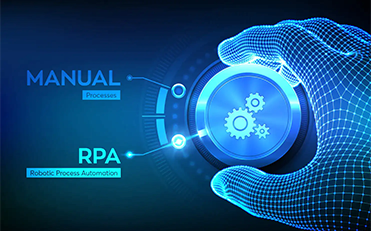
Implementing Robotic Process Automation (RPA) can be a strategic decision for many firms looking to achieve a seamless transition in various processes. There are several reasons why RPA can be considered a best bet for such firms:
- Efficiency and Accuracy: RPA bots can perform repetitive tasks with high accuracy and efficiency, reducing the chances of human errors. This ensures that processes are completed consistently and accurately, leading to improved overall efficiency.
- Cost-Effectiveness: RPA can significantly reduce operational costs by automating mundane tasks, allowing employees to focus on more strategic and value-added activities. Over time, this leads to substantial cost savings for the firm.
- Faster Processing: RPA bots can work 24/7 without breaks, leading to faster processing of tasks and streamlined workflows. This can be particularly beneficial for firms dealing with high volumes of data and transactions.
- Flexibility and Scalability: RPA platforms are flexible and can be easily customized to adapt to changing business requirements. Additionally, RPA implementations can scale as per the firm’s needs, accommodating increased workload without a proportional increase in costs.
- Improved Customer Experience: By automating routine tasks, employees can focus on providing better customer service and addressing complex customer needs. This leads to an enhanced customer experience, which is crucial for retaining clients and gaining a competitive advantage.
- Data Analytics and Insights: RPA generates valuable data as it processes tasks. This data can be analyzed to gain insights into operational efficiency, customer behavior, and other key metrics. These insights can inform strategic decision-making within the firm.
- Compliance and Audit Trail: RPA solutions can be programmed to ensure compliance with regulations and standards. Additionally, they maintain a detailed audit trail, providing a record of all activities. This feature is invaluable during audits and compliance checks.
- Integration Capabilities: RPA can integrate seamlessly with existing IT infrastructure and applications. This means firms do not need to make significant changes to their existing systems, making the implementation process smoother and less disruptive.
- Focus on Innovation: By automating routine tasks, employees can dedicate more time to innovation and creative problem-solving. This can lead to the development of new products, services, or business processes, fostering business growth and sustainability.
- Adaptability to Various Industries: RPA can be applied across a wide range of industries, from finance and healthcare to manufacturing and customer service. Its adaptability makes it a viable solution for firms in diverse sectors.